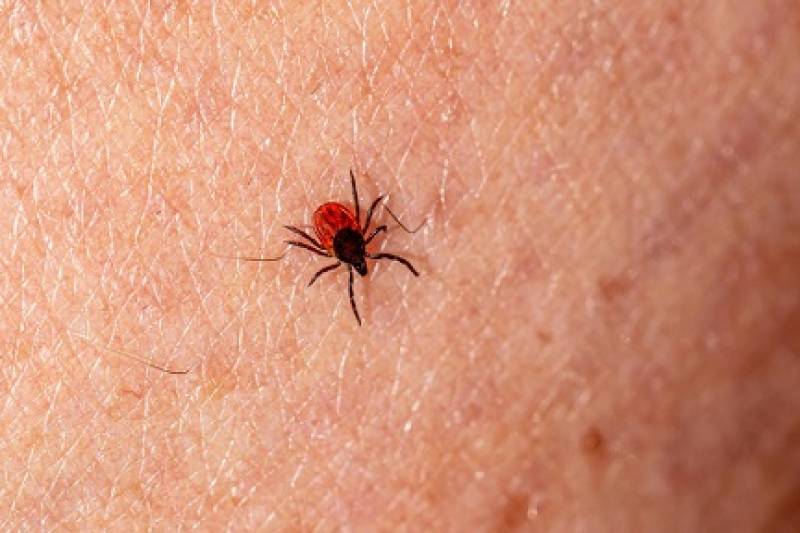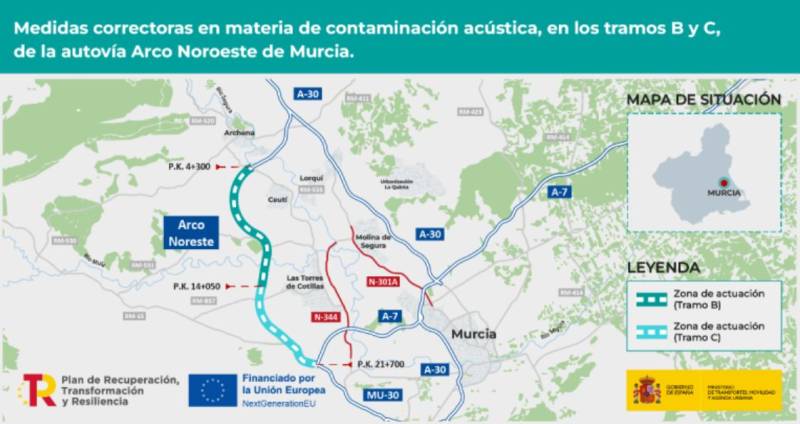
To be listed on the CAMPOSOL TODAY MAP please call +34 968 018 268.
article_detail
Date Published: 09/05/2024
Britons in Spain issued warning about deadly tick borne virus that kills 40 percent of victims
Britons in Spain have been warned about a virus that proves deadly in 40% of those who contract it
 The alert was raised by the Ministry of Health for the Castile and León in northwestern Spain following the hospitalisation of a man diagnosed with Crimean-Congo haemorrhagic fever (CCHF) that the deadly disease is indeed present in the country. It was confirmed that the patient, currently at the Salamanca Hospital, is in a critical but stable condition in an isolation protocol room.
The alert was raised by the Ministry of Health for the Castile and León in northwestern Spain following the hospitalisation of a man diagnosed with Crimean-Congo haemorrhagic fever (CCHF) that the deadly disease is indeed present in the country. It was confirmed that the patient, currently at the Salamanca Hospital, is in a critical but stable condition in an isolation protocol room.The CCHF virus is usually transmitted by ticks, which were in the news recently after an alert on “International Lyme Disease Day” another serious disease spread by ticks.
The World Health Organisation (WHO), list CCHF symptoms including:
Fever, Muscle Ache, Dizziness, Neck pain, Backache, Headache, Sore eyes, Sensitivity to light, Nausea, Vomiting, Diarrhoea, Abdominal pain, Sore throat, Sharp mood swings, Confusion, Sleepiness, Depression, Exhaustion, Fast heart rate, Enlarged lymph nodes.
 According to the WHO, the CCHF virus is transmitted to people either by tick bites or through contact with an infected animal’s blood and in the majority of cases have occurred in people involved in the livestock industry, such as agricultural workers, slaughterhouse workers and veterinarians. Adding, it is difficult to prevent or control CCHF infection in animals and ticks as the tick-animal-tick cycle usually goes unnoticed and the infection in domestic animals is usually not apparent. Furthermore, the tick vectors are numerous and widespread, so tick control with insecticides is only a realistic option for well-managed livestock production facilities.
According to the WHO, the CCHF virus is transmitted to people either by tick bites or through contact with an infected animal’s blood and in the majority of cases have occurred in people involved in the livestock industry, such as agricultural workers, slaughterhouse workers and veterinarians. Adding, it is difficult to prevent or control CCHF infection in animals and ticks as the tick-animal-tick cycle usually goes unnoticed and the infection in domestic animals is usually not apparent. Furthermore, the tick vectors are numerous and widespread, so tick control with insecticides is only a realistic option for well-managed livestock production facilities.At the present time there are no vaccines widely available for human or animal use and anyone who believes they may have been exposed to CCHF should seek medical advice as soon as possible.
In the absence of a vaccine the WHO state “the only way to reduce infection in people is by raising awareness of the risk factors and educating people about the measures they can take to reduce exposure to the virus.”
The best way to avoid tick bites by following some recommendations when nearing the countryside or farmland. These include wearing long sleeves and long pants, avoiding sandals or open shoes and always wearing closed boots with socks, making sure they cover the bottom of the pants.
In people recovering from the disease, improvements usually begin around the ninth or tenth day after symptoms start.
Loading
Sign up for the Spanish News Today Editors Roundup Weekly Bulletin and get an email with all the week’s news straight to your inbox
Special offer: Subscribe now for 25% off (36.95 euros for 48 Bulletins)
OR
you can sign up to our FREE weekly roundup!
Read some of our recent bulletins:
Discount Special Offer subscription:
36.95€ for 48 Editor’s Weekly News Roundup bulletins!
Please CLICK THE BUTTON to subscribe.
(List price 3 months 12 Bulletins)
Read more stories from around Spain:
Contact Murcia Today: Editorial 000 000 000 /
Office 000 000 000






























